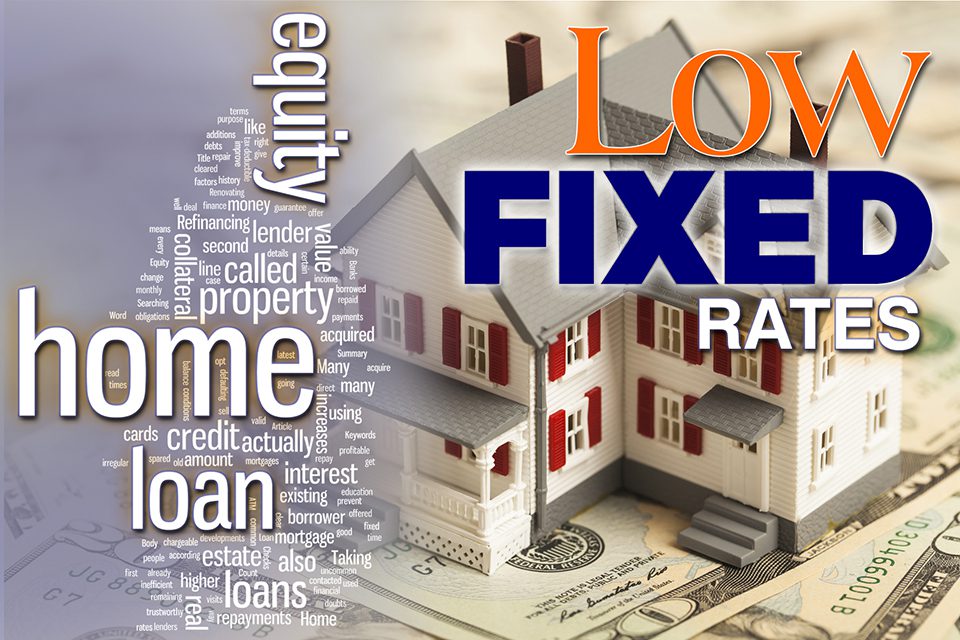True Success Stories Using Equity Release Mortgages
True Success Stories Using Equity Release Mortgages
Blog Article
Discovering the Various Kinds of Equity Release Mortgages Available Today
Equity Release home mortgages existing various choices for house owners aged 55 and over. equity release mortgages. These economic products deal with various needs and preferences, permitting individuals to gain access to funds from their building. From lifetime mortgages to shared appreciation mortgages, each kind provides unique benefits. Recognizing these alternatives is crucial for making informed choices. What variables should one think about when choosing one of the most suitable equity Release plan? The information that comply with might clarify this vital subject
Recognizing Equity Release Mortgages
Equity Release home loans supply home owners, typically those aged 55 and over, with a means to access the worth tied up in their home without needing to sell it. This monetary alternative permits individuals to transform a part of their home equity right into cash money, which can be utilized for different functions, such as home improvements, paying off financial debts, or funding retirement.Equity Release can take different types, but it essentially includes borrowing versus the worth of the home while retaining ownership. Home owners can choose to receive a round figure or a collection of smaller sized settlements, depending upon their financial requirements and preferences.Additionally, the quantity available for Release is affected by the residential property's worth, the home owner's age, and details loan provider requirements. Generally, comprehending equity Release mortgages is essential for homeowners to make educated choices concerning using their home's equity while taking into consideration the long-term ramifications.
Life time Mortgages
Lifetime home mortgages represent among one of the most preferred forms of equity Release. This financial product enables homeowners, generally aged 55 or older, to borrow against the value of their property while maintaining ownership. The funding, which is protected against the home, accumulates interest gradually however does not call for regular monthly payments. Instead, the car loan and accrued interest are repaid when the house owner passes away or relocates into long-lasting care.Lifetime mortgages use adaptability, as customers can pick to receive a lump sum or decide for a drawdown center, accessing funds as required. Notably, numerous strategies featured a no-negative-equity assurance, making sure that borrowers will never owe even more than the worth of their home. This attribute provides assurance, enabling people to appreciate their retired life without the concern of depleting their estate. In general, lifetime home mortgages act as a feasible alternative for those looking for financial backing in later life.
Home Reversion Plans

Drawdown Lifetime Mortgages
While several house owners look for ways to access their riches, drawdown life time home loans provide an adaptable choice that allows individuals to Release funds progressively. This kind of equity Release mortgage allows house owners to obtain versus the worth of their building while keeping possession. Unlike typical life time home mortgages, drawdown plans allow consumers to access a portion of their equity upfront and withdraw added funds as needed, as much as an established limit.This function can be specifically advantageous for those that want to handle their finances thoroughly, as it reduces interest buildup by only charging rate of interest on the amounts attracted. In addition, drawdown lifetime mortgages commonly come with a "no unfavorable equity assurance," making sure that customers will never owe greater than their home's value. This option suits retirees that desire economic protection and adaptability, allowing them to fulfill unanticipated expenditures or preserve their way of life without having to offer their residential property.
Improved Lifetime Mortgages
Improved Life time Mortgages use distinct benefits for eligible home owners looking for to Release equity from their residential or commercial properties. Understanding the qualification standards is necessary, as it identifies who can profit from these specialized financings. It is likewise essential to assess the prospective disadvantages linked with improved options, guaranteeing a well-shaped perspective on their usage.
Qualification Requirements Discussed
Understanding the eligibility standards for Enhanced Lifetime Mortgages is important for possible applicants seeking to access the equity in their homes. Usually, applicants must be aged 55 or older, as this age requirement is basic in the equity Release market. House owners must possess a property valued at a minimal threshold, which can differ by lender. Importantly, the building has to be their key residence and in excellent condition. Lenders frequently examine the house owner's wellness status, as particular health and wellness problems might enhance eligibility and advantages. In addition, candidates ought to not have existing substantial financial obligations secured against the property. Meeting these requirements permits people to explore Boosted Life time Home loans as a check my source viable alternative for accessing funds connected up in their homes.
Advantages of Enhanced Home Mortgages
After clarifying the eligibility criteria, it comes to be apparent that Improved Lifetime Home loans offer a number of considerable advantages for home owners wanting to leverage their residential property equity. Largely, they give access to a larger funding quantity contrasted to basic life time home mortgages, benefiting those with health conditions or age-related factors that boost their life span danger. This enhanced borrowing ability allows home owners to meet numerous monetary demands, such as home enhancements or retired life expenditures. In addition, these home loans usually feature flexible payment alternatives, allowing customers to handle their financial resources better. The no-negative-equity guarantee even more ensures that house owners will certainly never owe greater than their property's worth, giving comfort. On The Whole, Improved Life time Home loans offer a compelling alternative for eligible homeowners seeking monetary options.
Possible Downsides Thought About
While Improved Lifetime Mortgages offer countless benefits, potential drawbacks necessitate mindful consideration. One substantial worry is the influence on inheritance; the equity released minimizes the value of the estate delegated beneficiaries. Additionally, these mortgages can accumulate substantial rate of interest over time, causing a considerable debt that may exceed the original financing amount. There may additionally be constraints on building adjustments or rental, restricting property owners' flexibility. Additionally, boosted items typically call for particular health and wellness conditions, indicating not all home owners will qualify. Managing the costs and costs connected with these home mortgages can be complicated, possibly leading to unexpected expenses. Because of this, individuals must thoroughly evaluate their scenario and consult monetary advisors prior to proceeding.
Shared Admiration Mortgages
Shared Recognition Mortgages represent a special monetary setup that permits house owners to gain access to equity while sharing future building worth raises with the lending institution. This strategy uses potential benefits such as decreased month-to-month settlements, however it likewise comes with downsides that should be thoroughly considered. Comprehending the eligibility needs is important for those interested in this alternative.
Idea Overview
Equity Release mortgages, specifically in the form of common gratitude home mortgages, use homeowners a special financial solution that enables them to accessibility funds by leveraging the worth of their home. In this setup, a loan provider supplies a lending to the home owner, which is commonly paid off with a share of the property's future recognition in worth. This means that when the home owner sells the home or dies, the lender receives a portion of the boosted worth, instead of just the initial funding quantity. Shared appreciation home loans can be appealing for those wanting to supplement their income or money considerable expenses while preserving possession of their home. The economic ramifications of common admiration must be very carefully considered by potential customers.
Downsides and advantages
Although common recognition home mortgages can offer considerable economic benefits, they likewise feature notable drawbacks that possible debtors must think about. These home mortgages enable house owners to access equity in their properties while sharing a section of any kind of future admiration with the lending institution. This plan can be helpful during times of increasing residential or commercial property values, offering significant funds without month-to-month settlements. The primary disadvantage is the possible loss of equity; home owners might end up with substantially reduced inheritance for heirs. Furthermore, the intricacy of the terms can cause misconceptions concerning settlement obligations and the portion of admiration owed. For that reason, it is essential for customers to consider these elements thoroughly before devoting to a shared admiration mortgage.
Qualification Needs
What standards must home owners meet to receive a shared gratitude mortgage? Mainly, candidates must go to the very least 55 years old, guaranteeing they are within the target demographic for equity Release items. Furthermore, the property should be their main residence and typically valued above a defined minimum threshold, often around ? 100,000. Lenders also examine the home owner's monetary scenarios, consisting of revenue and arrearages, to determine they can handle the home mortgage sensibly. Importantly, the property has to remain in excellent problem and without considerable lawful encumbrances. Property owners must additionally have a clear understanding of the terms, consisting of how appreciation will be shown to the lender upon sale or transfer of the property, as this impacts total returns.
Picking the Right Equity Release Alternative

Frequently Asked Inquiries
What Age Do I Required to Be for Equity Release?
The age requirement for equity Release normally begins at 55 for a lot of strategies. Some service providers may use options for those aged 60 and above, mirroring varying terms based on private conditions and lending institution policies.
Will Equity Release Affect My Inheritance?
Equity Release can influence inheritance, as the amount obtained plus rate of interest lowers the estate's value. Successors might obtain less than prepared for, depending on the home's appreciation and the overall financial debt at the time of passing.
Can I Relocate Residence With Equity Release?
The inquiry of moving residence with equity Release develops frequently. Usually, individuals can transfer their equity Release strategy to a brand-new building, yet particular terms and conditions may use, requiring consultation with the lender for support.
Are There Charges Related To Equity Release Mortgages?
Fees associated with equity Release home loans can include plan fees, appraisal charges, and legal expenses. Additionally, there might be early payment fees, which can influence the general expense and monetary effects for the consumer.
How Does Equity Release Impact My Tax Obligation Scenario?
Equity Release can affect one's tax obligation situation by potentially increasing taxed earnings, as released funds are taken into consideration funding. It generally does not incur prompt tax obligation obligations, making it necessary to speak with an economic advisor for individualized assistance.
Verdict
In summary, the selection of equity Release home mortgages available today provides homeowners aged 55 and over several paths to access their residential property's worth - equity release mortgages. Whether selecting a lifetime mortgage, home reversion plan, or various other choices, each alternative presents distinct advantages customized to individual monetary requirements. Cautious factor to consider and appointment with a financial expert are vital to guarantee the chosen equity Release option straightens with individual objectives and economic situations, ultimately facilitating notified decision-making for a secure monetary future. Equity Release home mortgages existing numerous alternatives for home owners aged 55 and over. Equity Release mortgages offer property owners, usually those aged 55 and over, with a way to access the value tied up in their home without needing to offer it. Enhanced Lifetime Home loans provide distinct benefits for qualified house owners seeking to Release equity from their properties. Equity Release mortgages, specifically in the kind of shared gratitude mortgages, supply home owners a special monetary solution that allows them to access funds by leveraging the worth of their residential property. In summary, the selection of equity Release mortgages available today supplies house owners aged 55 and over multiple paths to access their home's worth
Report this page